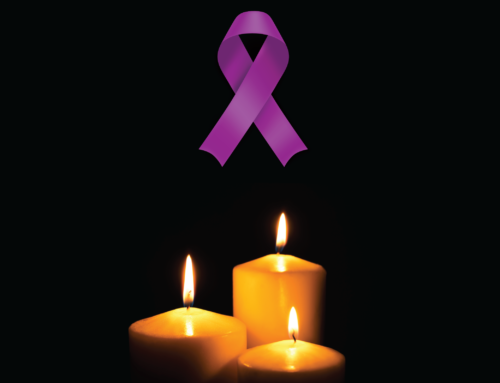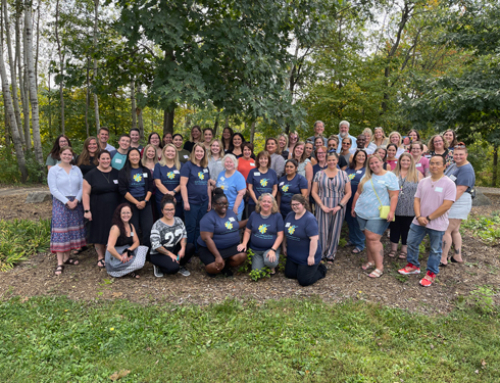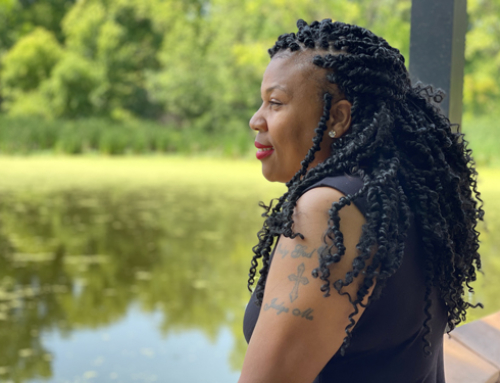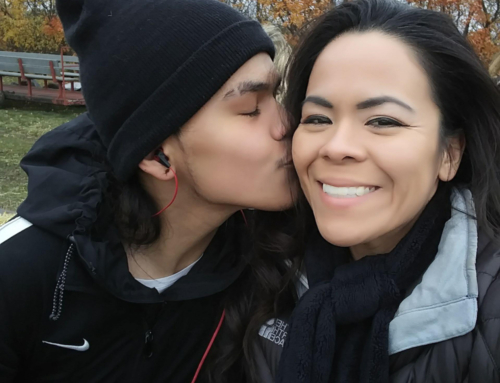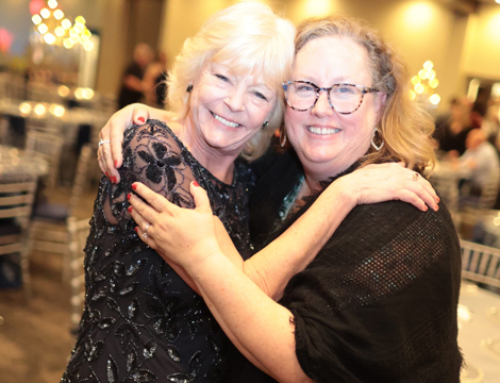360 Communities works upstream to prevent violence and promote healthy relationships
February is Teen Dating Violence Awareness Month, an excellent time to spread awareness and share tools to help young people navigate relationships as they mature.
an excellent time to spread awareness and share tools to help young people navigate relationships as they mature.
Domestic Violence Advocate and Community Educator Molly Hayes delivers presentations throughout the community about these often complex topics. She visits Dakota County classrooms to engage students in conversations about healthy relationships. She tailors her Healthy Relationships curriculum with age-appropriate material for students from grades 6 through college.
Making a difference with young people
Molly draws inspiration for her work from her childhood, recalling a lack of education about unhealthy and abusive relationships. “I found myself in quite a few unhealthy relationships simply because I didn’t know any better. Something was wrong, but didn’t know what is was or why I felt that way,” Molly says. “I find great satisfaction in knowing I can talk to students about these things so they don’t feel alone and know how to spot red flags in a relationship.”
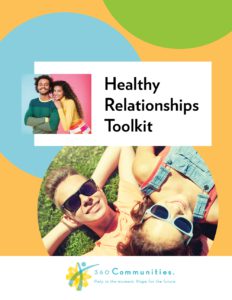 “Young people are listening even if it seems like they’re not. How I present sensitive materials can make a difference in how a kid chooses to move forward in a current or future relationship.” She says it is crucial that all adults know they can make a difference with children. “What we say and show kids about relationships matters.”
“Young people are listening even if it seems like they’re not. How I present sensitive materials can make a difference in how a kid chooses to move forward in a current or future relationship.” She says it is crucial that all adults know they can make a difference with children. “What we say and show kids about relationships matters.”
“I feel that between 12 and 15 years old, kids start to explore and think about dating people for the first time. We must engage with this age group about red flags in relationships, consent, and the importance of practicing healthy relationships,” she says. “If they start cultivating healthy relationships at a young age, it will be easier for them to spot when something might be unhealthy as they get older.”
Additional support for students and the community
Often students will approach Molly after presentations seeking additional help. Some want to know what to do if their parents are using abusive tactics against them. Others disclose sexual assaults. “I offer emotional support at that moment, but also our contact information at the end of every presentation, If appropriate, I also encourage students to talk with a trusted adult at home or school to determine the best course of action for them moving forward.”
According to Molly, everybody can benefit from this curriculum. “We all have relationships whether that be with friends, family, or romantic partners,” she says. “Adults can learn how to foster healthy relationships as well.” In addition to schools, Molly delivers to a wide variety of audiences in the community, such as MOMS groups, Rotary clubs, and church groups. Molly’s community education work helps 360 Communities deliver long-term safety and stability and connects people with resources to nurture safe and healthy relationships.
If you would like 360 Communities to present to your school or organization, call 360 Communities Violence Prevention Education at (651) 244-9826 or submit your request online here.
View our violence prevention resources and download our Healthy Relationships Toolkit.

